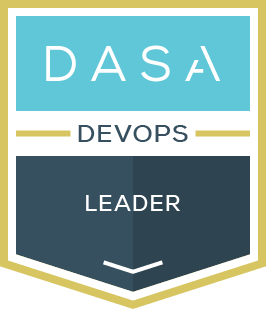In today’s dynamic environment, leadership extends beyond the traditional roles of decision-making and strategy formulation. An influential leader must cultivate a strong reputation, which is essential for fostering trust, inspiring teams, and driving organizational success, especially while managing a digital transformation. The cornerstone of a strong reputation lies in the 3Cs: Clarity, Confidence, and Credibility. This article delves into these principles and offers actionable strategies to achieve and sustain an impactful leadership presence.
The Importance of Reputation in Leadership
Reputation in leadership is a critical asset that can significantly influence a company’s success. According to research by Weber Shandwick, reputation accounts for approximately 44% of a company’s market value. For CEOs and senior leaders, a strong reputation can generate positive media attention, attract investors, retain employees, and provide crisis protection. Understanding and managing one’s reputation is crucial, especially as leaders navigate an often complicated, but essential, digital transformation . The “Three Cs of Influential Reputation” provides a robust framework on how to be aware of, and better manage, your reputation, and achieve success in your transformation.
The Three Cs of Influential Reputation
1. Clarity: Understanding and Leading Yourself
Clarity begins with self-awareness. Leaders must possess a deep understanding of their values, purpose, and impact on others. This process involves both internal and external awareness. Internally, leaders should reflect on their core values and purpose, which are the non-negotiables that guide their actions. Externally, leaders must understand how their behavior affects those around them.
- Self-Reflection and Feedback: Regularly engage in self-reflection and seek feedback from peers, mentors, and team members. Use tools like 360-degree feedback to gain a comprehensive view of your impact.
- Personal Development Plans: Develop and follow a personal development plan that focuses on enhancing self-awareness, emotional intelligence, and leadership skills.
2. Confidence: Fine-Tuning Your Behavior
Confidence stems from the ability to manage one’s thoughts, emotions, and behaviors effectively. It involves fine-tuning how leaders listen, think, feel, and lead. Listening, in particular, is a critical skill that can transform interactions and build stronger relationships.
- Active Listening: Practice active listening by focusing entirely on the speaker, asking insightful questions, and observing non-verbal cues. This improves understanding and builds trust.
- Mental Fitness: Cultivate mental fitness through mindfulness and resilience training. Learn to manage stress, stay focused, and maintain a positive outlook even in challenging situations.
3. Credibility: Inspiring Action Through Authentic Visibility
Credibility is achieved when leaders align their actions with their words and consistently demonstrate integrity. This involves being visible and transparent, sharing insights, and building a trustworthy public persona.
- Content Creation and Sharing: Regularly create and share content that reflects your values, insights, and expertise. Use platforms like LinkedIn, blogs, and public speaking engagements to reach a wider audience.
- Authentic Alignment: Ensure that your public persona accurately reflects your true self. Authenticity is key to building long-lasting trust and credibility.
Addressing Leadership Challenges
Leadership is not without its challenges, and addressing them head-on is essential for growth and impact. For example, overcoming blind spots and balancing authenticity and fit can significantly impact a leader’s ability to lead with confidence and integrity. By recognizing blind spots and striving for continuous improvement, as well as navigating the delicate balance between being true to oneself and fitting within an organization’s culture, leaders can enhance their effectiveness and create a more inclusive and supportive environment.
Overcoming Blind Spots
Blind spots can hinder leadership effectiveness. Leaders must identify and address these areas to improve their self-awareness and decision-making.
- Blind Spot Identification: Use personality assessments, coaching sessions, and peer feedback to identify blind spots. Work on mitigating these through targeted development activities.
- Continuous Learning: Embrace a growth mindset and commit to lifelong learning. Stay updated with the latest leadership theories, tools, and practices.
Balancing Authenticity and Fit
Being authentic in a professional setting can sometimes feel risky, especially in environments that may not fully embrace diverse perspectives.
- Cultural Fit Assessment: Regularly assess the cultural fit of your organization. If authenticity is not valued, consider advocating for a more inclusive culture or exploring opportunities that better align with your values.
- Building Relationships: Foster genuine relationships with colleagues. By understanding and respecting each other’s differences, teams can create a more supportive and authentic work environment.
Enhance Leadership Impact
There are various ways leaders can enhance their impact such as through active listening, building authenticity in remote environments, and measuring leadership success. Each of these concepts have actionable strategies that leaders can implement to make a lasting impact on their teams and organizations. By focusing on these elements, leaders can cultivate a more engaged, motivated, and high-performing workforce.
Active Listening
Active listening is a foundational skill for effective leadership. It involves fully concentrating, understanding, and responding thoughtfully to what others are saying.
- Practice at Home and Work: Start by practicing active listening in your personal life and gradually apply it in professional settings. Focus on the speaker, avoid interrupting, and ask follow-up questions.
- Use Silence Effectively: Utilize silence to process information and give others the space to express themselves fully.
Building Authenticity in Remote Environments
With the rise of remote work, maintaining authenticity and building relationships can be challenging.
- Virtual Coffee Chats: Schedule informal virtual meetings to connect with team members on a personal level. Use these sessions to build rapport and understand their perspectives.
- Consistent Communication: Maintain regular and transparent communication with your team. Share updates, celebrate successes, and address challenges openly.
Measuring Leadership Success
Leadership success should be measured using a combination of qualitative and quantitative metrics.
- Key Performance Indicators (KPIs): Develop KPIs that reflect both business outcomes and leadership effectiveness. These might include employee engagement scores, team performance metrics, and feedback from 360-degree reviews.
- Regular Reviews: Conduct regular reviews to assess progress against these metrics. Use the insights gained to adjust strategies and improve leadership practices.
Conclusion
Becoming an impactful leader requires a commitment to clarity, confidence, and credibility. By focusing on these three principles, leaders can build a strong and influential reputation that drives organizational success. Through continuous self-improvement, authentic engagement, and effective communication, leaders can inspire their teams, navigate challenges, and leave a lasting legacy.


DASA DevOps Leader
Helps leaders understand leadership in the context of DevOps, discusses leadership development models, building teams, and transforming the organisation.
